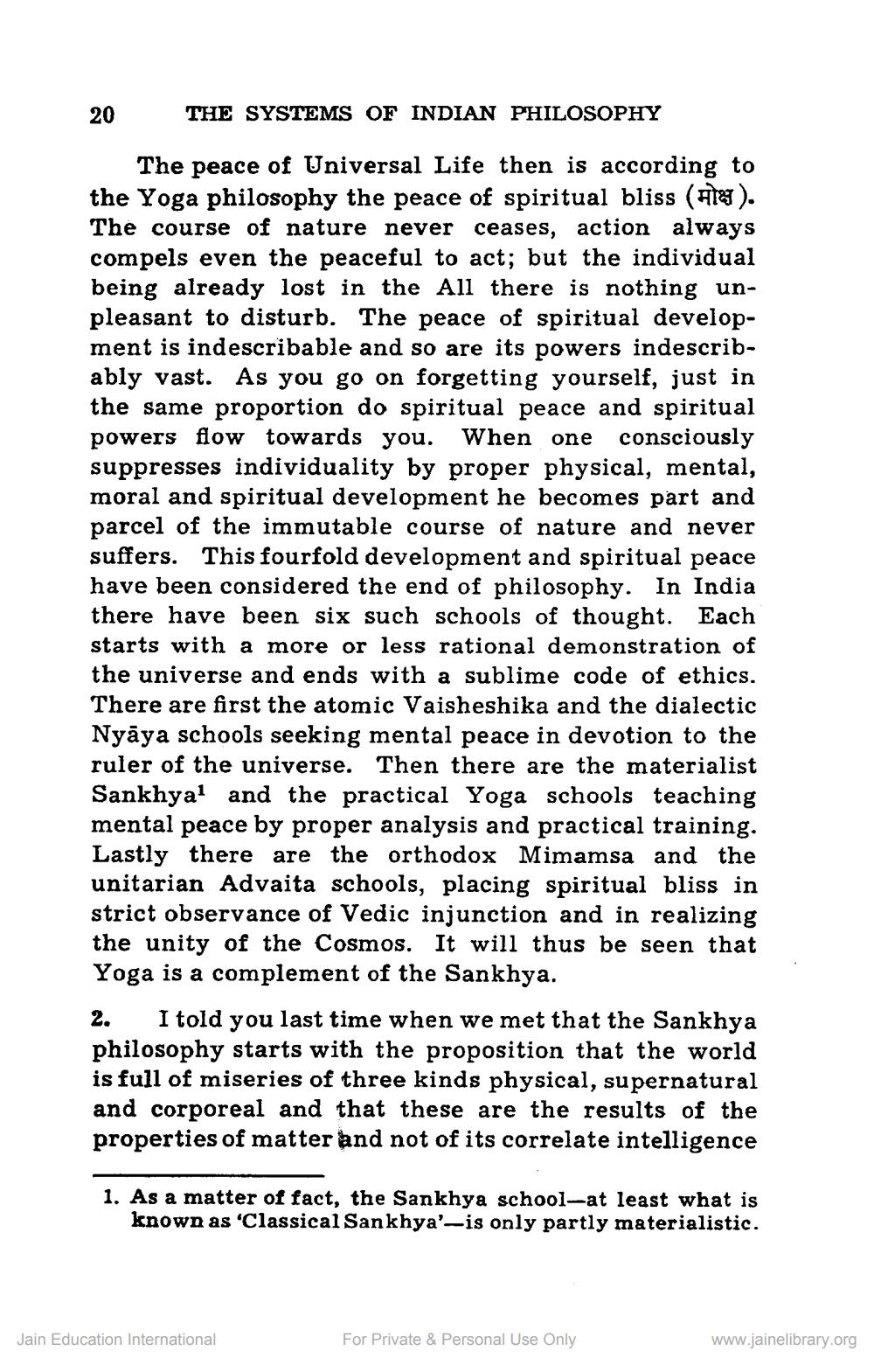________________
20
THE SYSTEMS OF INDIAN PHILOSOPHY
The peace of Universal Life then is according to the Yoga philosophy the peace of spiritual bliss (189). The course of nature never ceases, action always compels even the peaceful to act; but the individual being already lost in the All there is nothing unpleasant to disturb. The peace of spiritual development is indescribable and so are its powers indescribably vast. As you go on forgetting yourself, just in the same proportion do spiritual peace and spiritual powers flow towards you. When one consciously suppresses individuality by proper physical, mental, moral and spiritual development he becomes part and parcel of the immutable course of nature and never suffers. This fourfold development and spiritual peace have been considered the end of philosophy. In India there have been six such schools of thought. Each starts with a more or less rational demonstration of the universe and ends with a sublime code of ethics. There are first the atomic Vaisheshika and the dialectic Nyāya schools seeking mental peace in devotion to the ruler of the universe. Then there are the materialist Sankhyal and the practical Yoga schools teaching mental peace by proper analysis and practical training. Lastly there are the orthodox Mimamsa and the unitarian Advaita schools, placing spiritual bliss in strict observance of Vedic injunction and in realizing the unity of the Cosmos. It will thus be seen that Yoga is a complement of the Sankhya. 2. I told you last time when we met that the Sankhya philosophy starts with the proposition that the world is full of miseries of three kinds physical, supernatural and corporeal and that these are the results of the properties of matter and not of its correlate intelligence
1. As a matter of fact, the Sankhya school-at least what is
known as 'Classical Sankhya'-is only partly materialistic.
Jain Education International
For Private & Personal Use Only
www.jainelibrary.org




